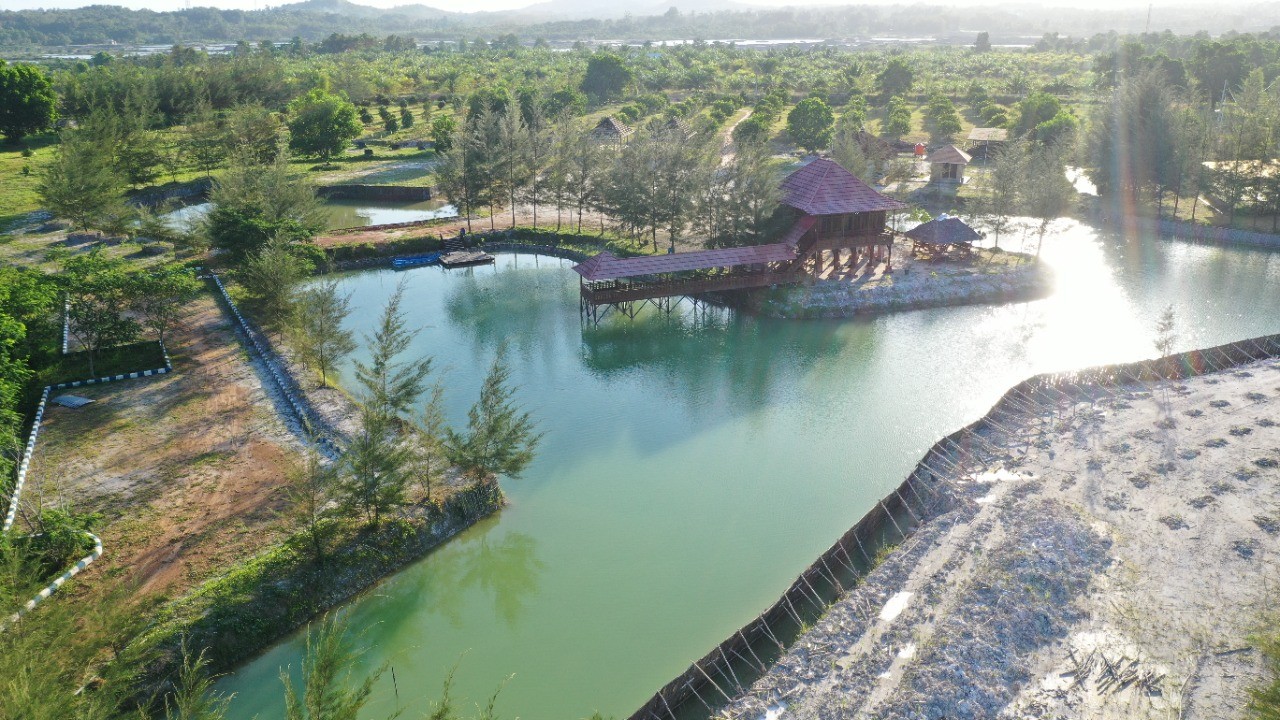
PANGKALPINANG – Sustainable environmental management is one of PT Timah Tbk's commitments in carrying out the mining process. PT Timah Tbk's environmental responsibility is in line with the company's reclamation program.
PT Timah Tbk consistently carries out ex-mining land reclamation, both on land and at sea. This is in line with the mining operations carried out by the company, namely on land and at sea.
In 2022, PT Timah Tbk targets to carry out land reclamation covering an area of ??402.5 hectares. This number has increased compared to 2021, where PT Timah Tbk has reclaimed 400.51 hectares.
This reclamation will be carried out in seven areas, which is in Bangka Regency as much as 135 hectares, West Bangka Regency 60.5 hectares, 12.5 hectares in Central Bangka Regency, 8.5 hectares in South Bangka Regency, 26 hectares in Belitung Regency, 68 hectares in East Belitung Regency, and ??92 hectares in Cross District.
For land reclamation that will be carried out by PT Timah Tbk, it refers to the reclamation document, namely carrying out revegetation activities by planting. The types of plants planted are fastgrowing, such as sea sengon, sea pine, and cashew nuts.
PT Timah Tbk's reclaimed land will also be planted with productive crops, such as oil palm, rubber and fruit trees such as citrus, avocado and hybrid coconut.
PT Timah Tbk has also carried out an integrated reclamation located in Kampoeng Air Jangkang Reclamation in Merawang District, Bangka Regency. Where Kampoeng Air Reclamation of Jangkang carries the concept of agro edu ecotourism.
Not only in the Kampoeng Air Jangkang Reclamation, PT Timah Tbk has also developed an integrated reclamation area in Selinsing Reclamation Village in East Belitung Regency. Here, ex-mining land is managed into various uses, such as nursery, seeding and breeding areas.
As for sea reclamation, this year PT Timah Tbk targets to sink 1,920 units of artificial reef which will become a breeding ground for fish. This sea reclamation will be submerged at 11 points in the Province of the Bangka Belitung Islands.
The sinking of artificial reefs was carried out on Panjang Island, Karang Rulak, Rambak, Tuing Waters, Putri Island, Tanjung Melala, Malang Gantang, Tanjung Ular, Karang Aji, Pelepas Island and Tanjung Kubu.
The Corporate Secretary of PT Timah Tbk, Abdullah Umar Baswedan said, PT Timah Tbk carried out a sustainable mining process, environmental aspects and management of ex-mining land became one of the company's priorities.
“The mining process carried out by PT Timah is carried out in a sustainable manner and follows applicable regulations. The reclamation aspect is a regulatory mandate. In addition, PT Timah Tbk carries out environmental management responsibilities by structuring ex-mining land," Abdullah said.
He said that in carrying out the reclamation, PT Timah Tbk also empowered the surrounding community, for example the community was invited to be involved in maintaining and caring for plants on ex-mining land.
For sea reclamation, even PT Timah Tbk involves groups of local fishermen to build artificial reefs to sinking and maintenance.
“The community empowerment program is carried out in several schemes, such as in Belitung, the Company cooperates with BUMDes to carry out the reclamation of former mines. Then with the community, for example, the community provides plant seeds, the company cooperates with Gapoktan. So that this reclamation will also have an economic impact on the community,” he said.
Abdullah said that mining activities cannot be denied by changing the landscape, for that the company as much as possible to minimize the impact on the environment by implementing Good Mining Practices in the company's business processes.
“As a mining company, we are aware of changes in the landscape, for that the company is consistent in reclamation and maintaining biodiversity. In the production process, the company always prioritizes the precautionary principle to minimize operational impacts," he said.*